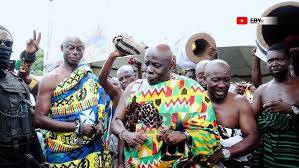The Influence of Traditional Leaders in National Politics
In many nations, traditional leaders hold significant sway over political decisions, especially during election periods. Their roles as custodians of culture, community leaders, and influential figures allow them to impact governance in ways that are often overlooked in contemporary political discourse. As discussions surrounding the influence of traditional rulers gain traction, it becomes imperative to explore how these figures shape national politics.
Traditional leaders serve as a bridge between the government and local communities, providing a unique perspective on the needs and aspirations of their people. Their deep-rooted connections within communities enable them to communicate effectively with both citizens and political leaders. During elections, their endorsements can significantly sway public opinion and voter turnout. Politicians often seek the support of these leaders to gain credibility and acceptance among local populations, recognizing that traditional authority can mobilize voters in ways that conventional campaign strategies may not.
Moreover, traditional leaders often possess valuable insights into the socio-economic conditions of their regions. They are attuned to the challenges their communities face, which allows them to advocate for policies that reflect the genuine needs of the populace. This local knowledge can be instrumental in shaping political agendas and informing policy decisions, ensuring that government actions resonate with the realities of everyday life.
However, the influence of traditional leaders is not without controversy. Critics argue that their power can undermine democratic processes, particularly when they exert undue pressure on constituents to vote in specific ways. This dynamic raises questions about the balance between respecting traditional authority and ensuring that electoral processes remain free and fair. As traditional leaders engage in political discussions, the potential for conflicts of interest arises, necessitating a careful examination of their roles.
In recent years, there has been a growing recognition of the need for collaboration between traditional leaders and formal political institutions. Initiatives that integrate traditional governance structures with democratic frameworks can enhance community engagement and improve governance. By acknowledging the role of traditional leaders in national politics, governments can foster more inclusive decision-making processes that honor cultural heritage while promoting democratic values.
In conclusion, the influence of traditional leaders in national politics is a complex and multifaceted issue. Their ability to shape political decisions, particularly during elections, underscores the importance of understanding the interplay between tradition and modern governance. As discussions on this topic continue to evolve, it is crucial to recognize both the benefits and challenges that traditional leaders present in contemporary political landscapes.



No comments yet
Be the first to share your thoughts!